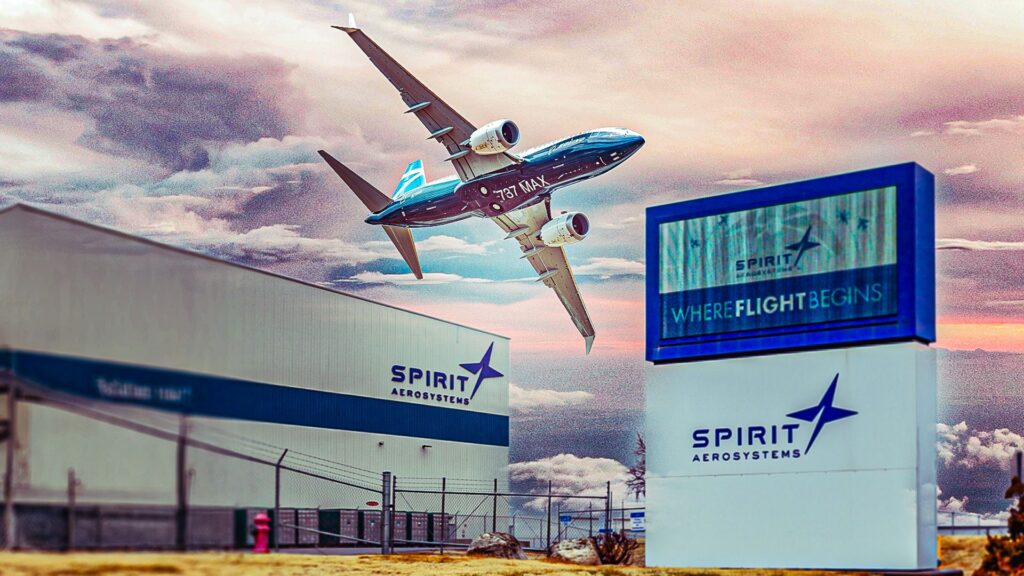
Boeing (NYSE: BA) is set to reacquire Spirit AeroSystems in an all-equity deal valued at approximately $4.7 billion. This strategic move aims to enhance Boeing’s control over its supply chain, particularly for the Boeing 737 family. Through this transaction, Spirit AeroSystems shareholders will receive Boeing stock instead of cash, while Boeing will assume Spirit’s debt, leading to an enterprise value exceeding the headline equity valuation.
In a related development, Airbus will acquire certain Spirit AeroSystems divisions that produce components for its aircraft. This arrangement ensures that both Boeing and Airbus maintain control over their critical aerostructures, with Spirit compensating Airbus to facilitate the transition. Regulatory authorities have begun approving the acquisition, with the European Union already giving its consent, subject to conditions around ongoing divestments of Airbus-related operations. US regulatory approvals are still pending, but the timeline suggests a target closing by the end of the year.
Understanding Boeing and Spirit AeroSystems
Boeing is a leading aerospace manufacturer involved in designing and supporting commercial jets, military aircraft, and space systems. The company operates through three main divisions: Boeing Commercial Airplanes, Boeing Defense, Space & Security, and Boeing Global Services. Boeing Commercial Airplanes is particularly significant, producing popular aircraft models such as the Boeing 737, Boeing 767, and Boeing 787 Dreamliner. The profitability of this division primarily hinges on production rates and supplier performance.
Spirit AeroSystems, on the other hand, is one of the largest independent aerostructure manufacturers globally, initially created from Boeing’s Wichita division in 2005. The company specializes in constructing airframe components, including fuselages for the Boeing 737 and Boeing 787, as well as wings for the Airbus A220. Spirit’s business model relies heavily on long-term contracts, where it absorbs upfront engineering costs in exchange for stable production volumes.
Details of the Acquisition
The planned reacquisition of Spirit AeroSystems by Boeing aims to simplify its supply chain and regain direct oversight of its critical aerostructures manufacturing, particularly for the Boeing 737 and 787 models. Boeing’s strategy includes integrating Spirit’s factories, tooling, and workforce back into its production system, which is expected to enhance accountability and delivery stability.
As part of this acquisition, Airbus will assume control of Spirit’s manufacturing sites focused on components for its aircraft, including the A220 and A320 families. This carve-out allows each manufacturer to maintain its unique supply base, ultimately aiming to reduce potential conflicts and improve operational efficiency.
Financially, Boeing’s acquisition will involve near-term cash outlays and integration costs. Nevertheless, the company anticipates that tighter vertical control will lower unit costs and enhance long-term program economics, addressing challenges that have impacted its financial performance.
Advising on this significant transaction are several high-profile financial institutions. Boeing is represented by PJT Partners and Goldman Sachs as lead financial advisors, while legal counsel comes from Sullivan & Cromwell. Spirit AeroSystems is similarly supported by Morgan Stanley and Moelis & Company for financial advice, with Skadden, Arps, Slate, Meagher & Flom serving as its legal counsel.
This acquisition presents a pivotal opportunity for Boeing to fortify its operational foundation at a time when the company has faced multiple challenges, including maintaining production safety and addressing supply chain disruptions. By bringing Spirit AeroSystems back under its umbrella, Boeing aims to enhance production efficiency, ensure quality control, and ultimately improve its competitive position against rivals like Airbus.







